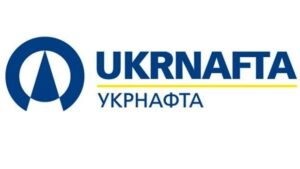
The process of unbundling the assets of PJSC Ukrnafta between NJSC Naftogaz Ukrainy and minority shareholders has been put on hold for now, although it was planned to be completed at the end of 2021, businessman Ihor Kolomoisky has said.
“Yes, on a pause… Naftogaz faced the problem of public opinion, government, the like, they need to get permission for some significant transactions, and so on,” he said in an interview with Ukrayinska Pravda.
According to the businessman, Naftogaz was the initiator of the unbundling process, and he supported it.
“Since life together does not work out, it is necessary to separate intelligently and culturally,” he said.
Earlier, at the end of November, President of Ukraine Volodymyr Zelensky said that the unbundling of Ukrnafta did not take place, since the state did not yet have the necessary funds to buy the assets.
As reported, in November-December 2021, due to the lack of a quorum, two meetings were not held at which it was planned to consider the issue of unbundling Ukrnafta’s assets between NJSC Naftogaz Ukrainy and minority shareholders – Ihor Kolomoisky and his partners. Another meeting of shareholders with a similar agenda is scheduled for February 17, 2022.
Ukrnafta is the largest oil company in the country. NJSC Naftogaz Ukrainy owns 50% plus 1 share in Ukrnafta, a group of companies associated with the former shareholders of PrivatBank – about 42% of shares.

U.S. Secretary of State Antony Blinken has announced sanctions against oligarch and former Ukrainian official Ihor Kolomoisky due to his involvement in major corruption.
“This designation is made under Section 7031(c) of the Department of State, Foreign Operations, and Related Programs Appropriations Act, 2020. In addition to Ihor Kolomoisky, I am publicly designating the following members of Ihor Kolomoisky’s immediate family: his wife, Iryna Kolomoiska, his daughter, Andzelika Kolomoiska, and his son, Israel Zvi Kolomoisky. This action renders Ihor Kolomoisky and each of these members of his immediate family ineligible for entry into the United States,” Blinken said in a statement released by on the website of the U.S. Department of State on Friday.
Blinken said that in his official status as the head of Dnipropetrovsk region of Ukraine from 2014 to 2015, Kolomoisky was involved in corrupt acts that undermined rule of law and the Ukrainian public’s faith in their government’s democratic institutions and public processes, including using his political influence and official power for his personal benefit.
“While this designation is based on acts during his time in office, I also want to express concern about Kolomoisky’s current and ongoing efforts to undermine Ukraine’s democratic processes and institutions, which pose a serious threat to its future,” the secretary of state said.
“This designation reaffirms the U.S. commitment to supporting political, economic, and justice sector reforms that are key to Ukraine’s Euro-Atlantic path. The United States continues to stand with all Ukrainians whose work drives reforms forward. The Department will continue to use authorities like this to promote accountability for corrupt actors in this region and globally,” Blinken said.
Aforementioned Section 7031 of the Department of state, Foreign Operations and Related Programs Appropriations Act gives the Secretary of State the power to deny entry to the United States of foreign government officials and their immediate family members, in respect of whom there is reliable information that they are involved in significant corruption (including related to the extraction of natural resources) or in gross violation of human rights.
An exception may be entry into the United States if it will contribute to the achievement of important goals of the U.S. law enforcement agencies or occurs within the UN Headquarters Agreement.
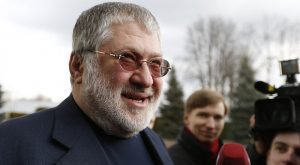
At a hearing on January 20, 2021, the Pechersky District Court of the Kyiv granted a petition of Ihor Kolomoisky in the case of a businessman’s claim against PrivatBank and other persons for humiliation of his honor and dignity and allowed him to demand the results of independent investigation by the detective agency Kroll Associates UK Limited from the Security Service of Ukraine (SBU) and the National Anti-Corruption Bureau (NABU).
According to a report in the unified public register of court rulings, the results include a printed report of financial forensic investigation and 15 annexes to it. The documents must be provided to the court before February 15.
Teamtrend Ltd., Trade Point Agro Ltd., Collyer Ltd., Rossyn Investing Corp., Milbert Ventures Inc. and Ukrtransitservices Ltd., which are allegedly owned or controlled by Kolomoisky and Hennadiy Boholiubov, joined the respective petition.
At the same time, the Kyiv court of appeals on January 21, 2021 overturned the decision of the Pechersky District Court of Kyiv made on August 20, 2020 to protect the honor, dignity and business reputation of Kolomoisky and refute the information disseminated by Anders Aslund, former senior fellow at the Peter G. Peterson Institute for International Economics (the United States) at the Yalta European Strategy economic forum in 2019.
The subject of the dispute, as indicated in the text of the document, was the following words: “The President should not meet with Kolomoisky. Only in court is it necessary to meet with the man who stole $5.5 billion…” and “…why is he not being tried?.. why is there no criminal case against the thief?.. because the thief stole too much?”
According to the National Bank of Ukraine, as of October 1, 2020, PrivatBank ranked first in terms of total assets (UAH 600.15 billion) among 74 banks operating in the country.
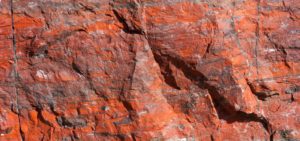
Ukrainian businessman Ihor Kolomoisky has proposed to increase the iron ore production royalty from 8.8% to 75%. “… If you export raw materials [from the country], then give back at least 75% from $80 per tonne – this is $60, and keep $20,” Kolomoisky said in an interview with the Censor.net ezine.
According to the businessman, these current royalty rates stimulate the export of raw materials.
“However, there is a second option – don’t sell ore right away!.. Produce steel – you have capacities, and instead of loading enterprises you reduce capacities, because now it is easier for you to sell ore, and not engage in production,” Kolomoisky said.
In addition, he stated the need for nationalization of the largest enterprises and the development of mineral resources.
“For the salvation of Ukraine, the universal nationalization of large state-forming enterprises plus the nationalization of the deposit development, that is, in several sectors, we need state capitalism,” the businessman said.
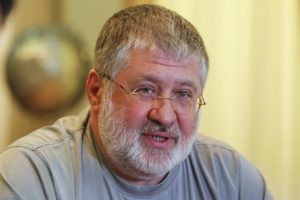
Lawyers are working on a possibility of waiving Ukraine’s debts to the Russian Federation or Russian companies as part of the execution of decisions of international courts in lawsuits won by Ukraine and Ukrainian companies from Russia regarding the loss caused to Ukraine in Crimea, one of the initiators of the litigations and former owner of PrivatBank Ihor Kolomoisky has said.
“Lawyers are working now to ensure that Ukraine’s debt, for which Ukraine is suing… there are billions of dollars in obligations to the Russian Federation, or, for example, $110 million for Tatneft, perhaps after a victory in the courts it will be possible to legally waive them. It is not an easy task, but it is being implemented,” he said in an interview with the Censor.net ezine.
According to him, an alternative to such debt repayment is the work of seizing Russian assets abroad.
Kolomoisky recalled that he was the first to sue the Russian Federation because of the damage suffered as a result of the annexation of Crimea, but now such disputes in international courts are initiated by Rinat Akhmetov’s companies, state-owned PrivatBank and Oschadbank.
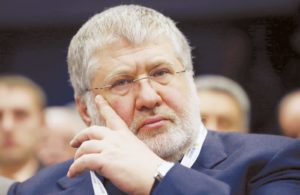
Ukrainian businessman Ihor Kolomoisky said his assets are worth $7.5-8 billion, $500 million of which is in the U.S.
“This [his wealth] is impossible to assess. When we made a disclosure to PrivatBank, there was a conservative assessment of $7.5-8 billion,” he said in an interview with NV, excerpts from which have been published on the publication’s website.
Kolomoisky said that he has decided not to expand his business in the U.S. over an FBI investigation.
“For the metallurgical part, we already know – minus $200 million. As for those buildings, it’s also not great. The iron alloy plant is our core thing, we’re holding on to that asset,” he said.
“In America, I have $500 million in investment, all told. I received $2 billion in direct payments from Evraz alone, to my private account with PrivatBank. What the hell did I need loans for? I never took loans from Privat,” Kolomoisky said.
On December 18, 2016, Ukraine’s government, at the recommendation of the National Bank of Ukraine (NBU) and former shareholders of PrivatBank, whose biggest shareholders at the time were Kolomoisky and Hennadiy Boholiubov, decided to nationalize PrivatBank, at the time the largest financial institution in Ukraine. The ex-owners of the bank consider the nationalization, as a result of which they lost all of their shares, to be illegal, while PrivatBank and the state are demanding additional compensation from them for damages. The parties are involved in litigation both in Ukraine and in foreign jurisdictions.
On April 18, 2019, Kyiv’s District Administrative Court declared the nationalization of the bank illegal in a suit initiated by Kolomoisky. The decision is being appealed.
Kolomoisky earlier proposed to settle in exchange for a roughly 25% stake in PrivatBank.